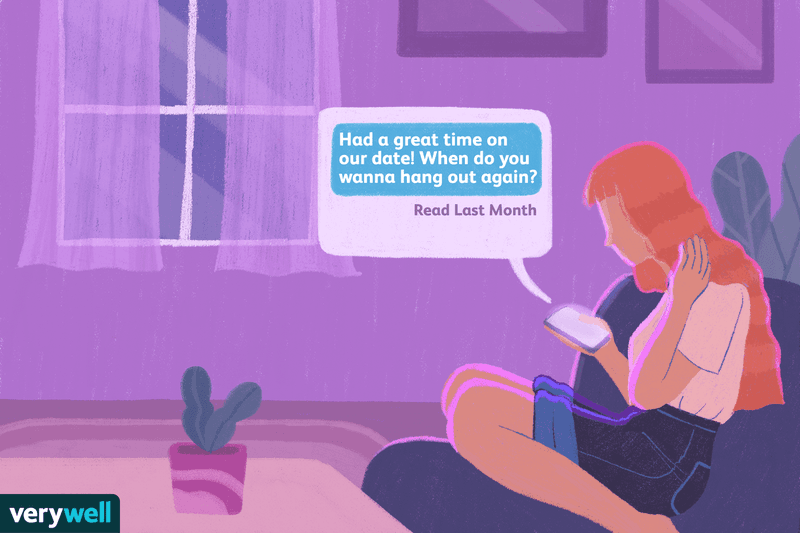17 Problems People With Poor Relationship Skills Have That Drive Away Potential Partners
You know those moments when your own love life feels like a blooper reel—full of almosts, awkward silences, and the occasional panic-text? If you’ve ever wondered why some connections just fade faster than Wi-Fi in the woods, you’re not alone.
The truth is, most of us (yep, guilty) have done things that (unintentionally) send potential partners packing. But here’s the twist: recognizing those quirks isn’t about self-blame. It’s about that liberating, slightly hilarious realization that you don’t have to play by the old rules anymore.
Here are 17 problems people with poor relationship skills run into—plus the sweet freedom that comes from letting them go. No shame, no lectures. Just a handful of tried-and-true truths only your most honest friend would spill over coffee.
1. The Art of Awkward Silence

Picture this: you’re sitting across from someone cute, and suddenly, it’s like your brain has gone on vacation without you. Silence stretches between you, growing more dramatic by the second. Your mind scrambles for something—anything—to say, but all you can think of is the weather (again).
If you’ve ever felt your heart race at the thought of small talk, you’re not alone. For years, I mastered the fine art of awkward pauses. I was convinced if I said the wrong thing, the universe would implode. But here’s the twist: letting go of that fear meant making peace with occasional silence—and realizing it’s not a sign of failure.
Sometimes, the best connections don’t require a script. Embracing those moments of quiet (and not apologizing for them) feels like exhaling after holding your breath too long. So, next time the conversation stalls, just smile. You’re not a robot—you’re gloriously, beautifully human. (And hey, even Oscar-winning actors forget their lines.)
2. Emotional Escape Room Champion

You might win at escape rooms, but when it comes to emotions, you’re practically Houdini. Every time a real feeling dares to show up, you find a mental trapdoor and vanish faster than a magician at the end of the show. Vulnerability? Never heard of her.
For a long time, I thought keeping my guard up was proof of strength. Feeling things was dangerous territory—so I built emotional walls with industrial-grade bricks. But eventually, those walls became a little too good at keeping everyone (and everything real) out.
Here’s the revelation: letting people see your messy, unfiltered feelings doesn’t make you weak. It means you’re showing up for the good, the bad, and the ugly. Trust me, it’s infinitely more interesting than running a fortress. And if you ever feel exposed, remember, the bravest thing you can do is actually let someone in. (No construction helmet required.)
3. Serial Over-Explainer Anonymous

Ever find yourself turning a simple “I was late” into a ten-minute saga featuring traffic, existential dread, and the philosophical meaning of “time?” Welcome to the club. You don’t just explain—you defend, justify, and occasionally over-share until even you forget the original question.
I used to believed every action needed a press conference. Maybe it was a desperate grab for understanding, or just a nervous tic. But here’s the irony: the more you explain, the less your date actually cares about the details. They’re not grading your life choices.
These days, I’ve discovered the glory of a concise response. Sometimes, “Sorry I’m late” is enough. There’s a certain freedom in not treating every coffee run like a Senate hearing. So, breathe out. You don’t owe the world (or your date) a footnote for every move you make.
4. The Ghost of Texts Future

Raise your hand if you’ve ever ghosted someone, then spent the next week feeling like an undercover agent every time your phone buzzed. The unread messages loom like haunted reminders of conversations left dangling in purgatory. It’s not (always) about cruelty—it’s just easier to disappear than to say you’re not interested.
In my earlier dating attempts, vanishing felt like self-preservation. But the aftermath was always a weird cocktail of guilt and relief. Turns out, ghosting someone is basically buying yourself a one-way ticket to Awkwardville.
What’s better? Trying honesty—yes, even if it feels cringe-worthy at first. Telling someone you’re not feeling a spark is kinder than leaving them waiting for a reply that never comes. Plus, closure is a gift you can give even when things don’t work out. The real magic? Realizing ghosting doesn’t make you mysterious—it just makes you unavailable. And you’re done with that old costume, right?
5. Boundary: What’s That?

If you’ve ever treated boundaries like an optional side order at a restaurant, you know the chaos it brings. Saying yes to every request, absorbing drama by osmosis, and never knowing where you end and someone else begins—it’s a recipe for emotional indigestion.
I used to think setting boundaries was rude, like telling someone you didn’t like their haircut. But turns out, boundaries are less about pushing people away and more about inviting the right ones closer. It’s self-respect with a side of sanity.
These days, I love a good boundary like I love brunch. It’s deliciously satisfying to say, “No, thanks,” and mean it. And the people who stick around? They’re the ones who actually respect your fence—picket or invisible. Bonus: drama levels drop, and your energy comes back. Who knew self-respect could be so refreshing?
6. Validation Vending Machine

There was a time when my self-worth came in the form of likes, compliments, and the ever-elusive “good morning” text. If someone didn’t notice, I’d spiral faster than a toddler denied a snack. Validation wasn’t a treat—it was my oxygen.
Sound familiar? Constantly seeking approval can feel like you’re a never-ending vending machine, always hungry for another coin. But after years of chasing reassurance, you realize it’s exhausting for everyone—especially for a partner who just wants to relax.
The breakthrough? Discovering that most of the validation you need has to come from inside, like a secret stash of confidence you forgot you had. When you stop demanding external proof of your worth, relationships get lighter, breezier, and a lot more fun. And that “good morning” text? It’s a bonus, not a life raft.
7. Commitment-phobe in Disguise

Ever felt like committing to a relationship was akin to signing a mortgage in blood? You’re not alone. The mere mention of “future plans” once sent me into a minor existential crisis, complete with daydreams of remote islands and solo adventures.
For a while, I convinced myself that keeping my options open was empowering. But the truth? It left a lot of good things half-baked. A real connection can’t grow if you’re always halfway out the door (cape flapping dramatically in the breeze).
Letting go of commitment-phobia means realizing you don’t have to lose yourself to love someone. In fact, the right person wants the real you—future quirks, flaws, and all. The freedom comes when you stop running and finally unpack that imaginary suitcase.
8. Reading Minds, Missing Signs

Do you ever expect your partner to magically know what you want—without actually saying it? Welcome to the not-so-mystical art of mind reading. Spoiler: even the best partners aren’t psychic, no matter how many hints you drop.
I used to think love meant knowing each other’s needs without words. But that led to a lot of disappointment and confusion. Turns out, sharing what you want (and need) isn’t selfish; it’s generous. It saves everyone from guessing games and accidental let-downs.
The real magic happens when you stop hoping for mind readers and start having real conversations. Suddenly, unmet needs become shared plans. And those mysterious “signs” you keep looking for? They’re actually just invitations to speak up. Trust me, your partner will thank you for ditching the crystal ball.
9. Drama Magnets Anonymous

If your love life has ever felt like a never-ending soap opera, you might have a hidden talent for attracting chaos. Every disagreement turns into a headline-worthy event, and peaceful days are suspiciously rare. I’m talking group chats that catch fire and exes who make cameo appearances at the worst times.
Being a drama magnet was once my unofficial superpower. It kept things exciting, but it also wore out my partners (and honestly, myself). Eventually, I realized that quiet, boring days are actually golden.
Now, I enjoy relationships that feel like a cozy indie film instead of a reality TV showdown. Less drama means more space for actual connection—and fewer plot twists that make you want to toss your phone out the window. Remember: real love isn’t a ratings game. It’s the peace that follows the storm.
10. The Social Media Minefield

If you’ve ever agonized over whether to like an ex’s photo or wondered how soon is too soon to update your status, welcome to the social media minefield. Every tap feels like it could trigger a minor relationship crisis. The digital world is full of landmines that can explode with one wrong move.
Once, I believed a “like” was a love letter and that every online interaction needed strategic planning. But after a few too many late-night social media stalking sessions, I realized it’s just pixels and noise. The real connection happens offline, where emojis can’t replace eye contact.
Getting comfortable with social media means setting boundaries, having actual conversations, and maybe muting that ex for your sanity. Your relationship isn’t defined by digital moves—it’s built on all the stuff that never makes it to your timeline. (And your battery will thank you.)
11. Personal Growth on Pause

Ever feel like your own goals have been collecting dust while you wait for someone else to light the spark? It’s easy to lose track of personal growth when you’re busy trying to make a relationship work. But here’s a secret: partners can’t do the heavy lifting for your happiness.
I fell for this trap too, believeing self-improvement was a team sport. But when you pause your progress, things get stagnant fast. Relationships thrive when both people keep growing, learning, and chasing their own dreams.
Rediscovering your passions—whether it’s painting, running, or learning a new language—makes you a better partner and a happier human. Personal growth isn’t selfish; it’s essential. And, bonus, your partner gets to fall in love with someone who keeps getting more interesting with time.
12. Accountability Allergies

If you’ve ever dodged responsibility like it was a bad cold, you might have a mild allergy to accountability. Every argument turns into a courtroom drama, complete with evidence, cross-examination, and a desperate attempt to pin the blame elsewhere. It’s exhausting—and not just for your partner.
Don’t even get me started on how stubborn I used to be about admitting fault—it made me feel vulnerable. But it turns out, the most freeing moment is just saying, “Yeah, that was on me.” Ownership turns conflict into growth instead of endless replays of the same fight.
Accountability isn’t about guilt trips—it’s about freeing yourself from old patterns. When you own your mistakes, you actually become someone your partner can trust. And trust me, the relief is real. (Plus, those sticky notes make terrible wallpaper.)
13. The Fixer-Upper Fetish

Have you ever dated someone and immediately started drawing up blueprints for their “potential”? Maybe you saw them as a fixer-upper—someone who just needed a little love, a gentle nudge, and a full personality remodel. (HGTV would be proud.)
For me, it was a noble mission at first. But trying to change someone rarely ends well. Instead, you end up frustrated, and your partner feels like a failed DIY project. Real love is about acceptance, not renovation.
Here’s the growth: you’re not responsible for anyone else’s “upgrade.” When you let people be who they are, you get to be loved (and love) for real. Turns out, relationships aren’t home improvement shows—and that toolbox looks much better in the garage.
14. The Jealousy Juggler

If you’ve ever felt your stomach drop because your partner laughed at someone else’s joke, you know the circus act of jealous juggling. The more you try to keep those green balls in the air, the more exhausting (and awkward) it gets. It’s a show with no intermission.
For a long time, I thought jealousy was a sign I cared. But the constant worry just made everything tense. When you start trusting yourself (and your partner), the urge to control every interaction drops away.
Jealousy isn’t proof of love—it’s proof you need more security inside, not outside. Letting go of the act means you can finally put the balls down and catch your breath. Spoiler: most partners are relieved when the show’s over, too. And you’ll have more fun watching life, not just the ring.
15. The Love Test Proctor

Ever given your partner a pop quiz without warning? Maybe it’s tiny “tests” to see if they’ll remember your favorite snack or if they care enough to text first. Spoiler alert: love isn’t a trick question.
I used to turn relationships into an endless exam. But the tests always left someone failing, and nobody likes being graded in romance. Letting go of this habit means trusting your partner without needing proof at every turn.
The true magic appears when you stop measuring love with quizzes. You get more real moments, fewer scorecards, and a relationship that actually feels relaxing. And yes, your partner will appreciate not being in a lifelong class with surprise finals. (Save the red pen for crossword puzzles.)
16. The Overcommitter’s Hangover

Ever agreed to three brunches, two movie nights, and a weekend road trip—all in the same breath? Welcome to the overcommitter’s hangover, where your calendar is fuller than your fridge and your partner just wants a quiet night in. It’s the pursuit of connection, gone wild.
I’ve been there, chasing the thrill of always being busy. But eventually, you start to crave stillness—a rare night that isn’t scheduled to the brim. Saying no (or just “maybe later”) is a skill worth learning.
Here’s the real treat: downtime isn’t wasted time. It’s the secret ingredient that lets relationships breathe and grow. The next time your calendar tempts you, ask yourself—do you want another event, or just a deeper connection? (Bonus: pajamas become a lifestyle, not just sleepwear.)
17. The Apology Addict

Ever found yourself apologizing for things like breathing too loud, taking up space, or bumping into imaginary furniture? Welcome to the world of apology addiction. It’s a habit that sneaks up on you, making every moment feel like a micro-crime.
For years, I thought being overly apologetic was polite. But eventually, even my dog started rolling his eyes. Over-apologizing actually waters down real remorse—and leaves everyone feeling awkward.
Freedom comes when you save your sorries for the big stuff. Suddenly, each apology means something, and your partner starts listening again. Taking up space (and making noise) isn’t a crime—it’s just being alive. You deserve to be here, no apologies required.






